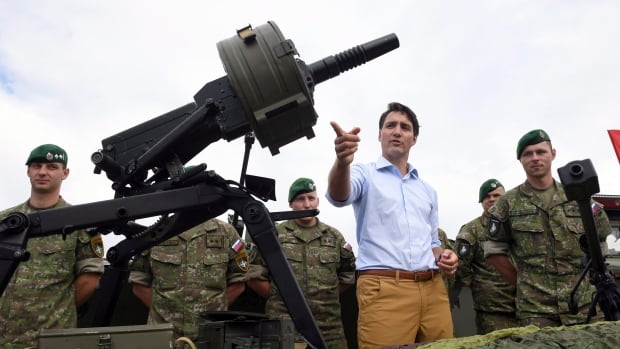Early on Tuesday morning, brothers Mahmoud and Abdelrahman Kouta, each wearing a slim backpack, waited in line to board an idling white tour bus in Rafah just a few minutes’ drive from Gaza’s border with Egypt.
Abdelrahman climbed the steps and disappeared into the bus first, with Mahmoud squeezing through the crowd to follow close behind. After 160 days living under threat of bombing, starvation, dehydration and illness, the brothers from London., Ont., were getting out of Gaza.
“What we have been living the past six months is something unexplainable … living more than a horror movie, more than what you’d see in a Hunger Games movie,” said Mahmoud, 21, speaking to a freelance journalist working for the CBC while waiting for the bus to take him and his brother to Cairo.
“I am sad and happy at the same time,” he said. “I am happy that I had the chance to evacuate and that I will evacuate today, but I’m sad that my family and relatives are still in Gaza dying under the threat of bombing and starvation.”
Third brother stuck far from border
The brothers are among hundreds of Canadians who have fled Gaza since war broke out between Israel and Hamas on Oct. 7. The last step of their journey to escape the besieged enclave comes as Israel threatens a ground invasion of Rafah, one of the last relatively safe areas of the strip, and talks of a ceasefire continue behind closed doors.
Mahmoud had been pleading with the Canadian government to evacuate him and his brothers since December. Immigration Minister Marc Miller said officials were working to get 500 Canadians living in Gaza to Cairo, but the Kouta brothers never saw their names on the list of approved evacuees.
But on Monday, the Canadian embassy contacted the brothers to let them know they had been added to a list of foreign nationals in Gaza who would be allowed to cross the border in Rafah.
Mahmoud Kouta, 21, has been stuck in Gaza with his wife and 18-month-old daughter since the current Israel-Hamas war broke out. The Canadian citizen and his family fled south after their house in the north was bombed, he says. ‘When I go to find water, when I go to find food, I tell my wife goodbye. I kiss my daughter and I hope it’s not the last kiss that I give to her.’
Mahmoud and Abdelrahman left for the bus first thing Tuesday. Their third brother, Ahmed, is also on the list of approved evacuees, but he can’t get to the border as he’s still in the northern part of the Gaza strip.
“He hasn’t had the chance to leave safely from the north to the south,” said Mahmoud, who was living in Gaza City in the north when the war started. He fled south in October after his house was bombed.
European leaders urge against ground operation
Israel launched its onslaught in response to Hamas’s brutal attack on Oct. 7, which left 1,200 people dead, and saw 253 people taken hostage. Health officials in Gaza say Israel’s responding military campaign has killed more than 31,000 people and displaced nearly two million Gazans in the southern tip of the strip as of Tuesday.
Hamas still holds over 100 hostages in Gaza, according to the Israeli government.
As of Jan. 3, the total number of Canadian citizens and residents who were able to get out of Gaza stood at 705.
Talks between Hamas and Israel for a possible ceasefire are ongoing, though nothing has been confirmed. Israeli Prime Minister Benjamin Netenyahu said Tuesday a ground invasion is possible in Rafah, where 1.5 million people have sought shelter, as the Israel Defence Forces continue their mission to find hostages held by Hamas.
European Union leaders plan to urge Israel not to launch a ground operation in Rafah, according to draft conclusions of an upcoming summit.
“The European Council urges the Israeli government to refrain from a ground operation in Rafah, where well over a million Palestinians are currently seeking safety from the fighting and access to humanitarian assistance,” according to a draft text of conclusions of a summit seen by Reuters.
Before getting on the bus to Cairo on Tuesday, Abdelrahman Kouta said he and his brother hope to eventually fly back to Canada to join their parents, who were also able to evacuate to Canada safely.
He hopes others in Gaza get the same chance.
“We pray that all the people of Gaza stay safe,” said Abdelrahman. “God willing, there will be a ceasefire soon.”





